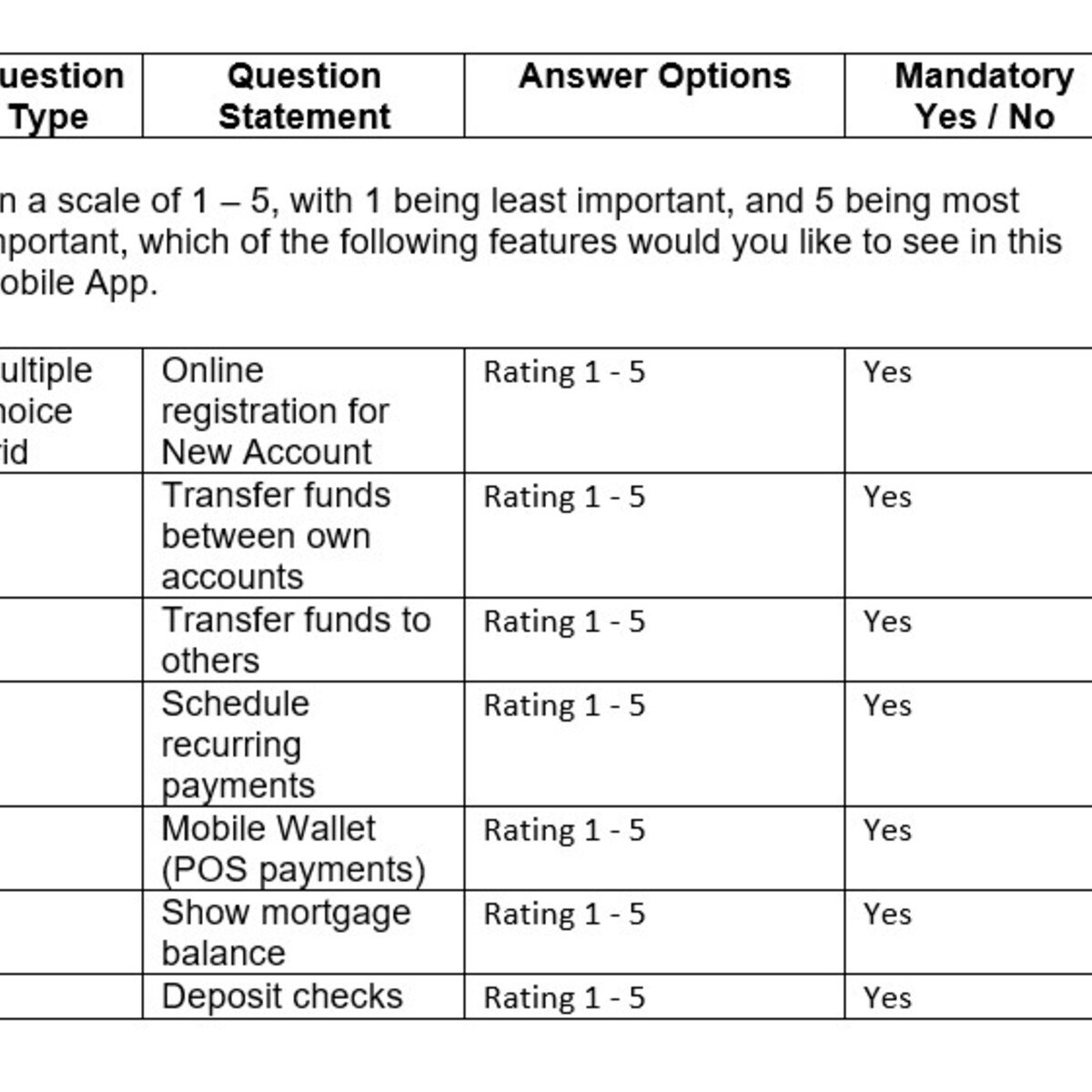User Research
User Research: Understanding the People Behind the Products
User research is a systematic investigation of users and their requirements, aimed at adding context and insight into the process of designing the user experience. It employs a variety of techniques to uncover problems and design opportunities, ultimately helping teams create products and services that meet user needs effectively and provide genuine value. At its core, user research is about understanding people – their behaviors, motivations, attitudes, and needs – within the specific context of a product or service.
Embarking on the path of user research can be intellectually stimulating and deeply rewarding. It involves becoming a detective of human behavior, piecing together clues from interviews, observations, and data analysis to inform design decisions. Professionals in this field often find excitement in the "aha!" moments when complex user problems become clear, and in the satisfaction of knowing their work directly contributes to creating better, more intuitive, and more enjoyable experiences for people interacting with technology and services every day.
Introduction to User Research
Definition and Scope of User Research
User Research (UR) is the foundational practice of understanding user behaviors, needs, and motivations through observation techniques, task analysis, and other feedback methodologies. It's not just about asking people what they want; it's about deeply understanding their context, constraints, and goals to inform the design and development of products, services, or systems. The scope is broad, encompassing everything from initial exploratory research to understand a problem space, to usability testing of prototypes, to post-launch analysis of user behavior.
The primary goal is to center the design process around the end-user. By gathering insights directly from the target audience, teams can reduce the risk of building something nobody wants or needs. User research provides the empirical evidence needed to make informed decisions, moving beyond assumptions and internal opinions. It helps identify pain points in existing experiences and uncovers unmet needs that can lead to innovation.
This field draws upon methods from social sciences, psychology, anthropology, and human-computer interaction. It involves planning research studies, recruiting appropriate participants, collecting data through various methods, analyzing that data to identify patterns and insights, and effectively communicating findings to stakeholders like designers, product managers, and engineers. The insights generated guide product strategy, feature prioritization, interaction design, and overall user experience improvements.
Purpose in Product/Service Development
User research serves a critical purpose throughout the entire product development lifecycle. In the early stages, it helps define the problem space, identify target users, and understand their context and requirements. This foundational understanding ensures that the team is solving the right problem for the right people, preventing wasted effort on features or products that miss the mark.
As development progresses, user research informs design decisions. Concepts, wireframes, and prototypes are tested with users to gather feedback on usability, desirability, and overall effectiveness. This iterative testing process allows teams to refine designs based on real user interactions, catching potential issues early when they are cheaper and easier to fix. It helps validate design choices and ensures the final product is intuitive and easy to use.
Even after a product launch, user research continues to play a role. Ongoing research, such as analyzing usage data, conducting surveys, or interviewing existing users, helps teams understand how the product is being used in the real world, identify areas for improvement, and inform future iterations or new feature development. It ensures the product evolves to meet changing user needs and market dynamics.
Key Principles (e.g., Empathy, Objectivity)
Several key principles guide effective user research. Empathy is paramount – researchers must strive to understand users' perspectives, experiences, and feelings without judgment. This involves active listening, careful observation, and stepping into the user's shoes to grasp their world and challenges. Empathy allows researchers to uncover latent needs and motivations that users might not explicitly state.
Objectivity is another crucial principle. Researchers must approach their work with an open mind, seeking to uncover truths rather than confirm pre-existing biases or assumptions. This requires careful study design, neutral questioning techniques, and rigorous analysis of data. Findings should be reported accurately, even if they challenge the team's initial hypotheses or desired outcomes.
Ethical conduct is fundamental. Researchers must respect participants' time, privacy, and dignity. This includes obtaining informed consent, ensuring confidentiality, being transparent about the research purpose, and avoiding any harm or deception. Furthermore, context matters deeply; user behavior and needs are often shaped by their environment, tasks, and goals. Research should always consider this context to generate meaningful insights.
These introductory courses provide a solid overview of user needs and the importance of empathy in design.
Relationship to UX Design and Market Research
User research is closely related to, but distinct from, User Experience (UX) Design and Market Research. UX Design is the broader field focused on creating the entire experience a user has with a product or service. User research provides the critical inputs and feedback loops for the UX design process, ensuring designs are user-centered and effective. While UX designers might conduct some research, dedicated user researchers often handle more in-depth studies.
Market research typically focuses on market trends, demographics, competitor analysis, and purchase intent – often answering questions about "what" people might buy and "who" they are in broad segments. User research, conversely, delves deeper into the "why" and "how" of user behavior in relation to a specific product or service. It focuses on understanding user needs, behaviors, and interactions to improve usability and satisfaction, rather than solely on market viability or purchasing decisions.
While there can be overlap, particularly in methods like surveys, the goals differ. Market research often informs business strategy and marketing efforts, while user research primarily informs product design and development. Both are valuable, and insights from each can complement the other, but they address different questions and serve distinct purposes within an organization.
To understand the broader context, exploring related fields can be beneficial.
Historical Development
Origins in Human-Computer Interaction
The roots of user research can be traced back to the post-World War II era, within fields like ergonomics and human factors. The focus then was primarily on optimizing the physical interaction between humans and machines, particularly in military and industrial settings. The goal was efficiency and error reduction in complex systems. Early pioneers studied operator performance, control layouts, and information displays to make systems safer and more effective.
With the advent of personal computers in the 1970s and 1980s, the field of Human-Computer Interaction (HCI) emerged. Researchers began applying human factors principles to software interfaces, recognizing that usability was critical for the adoption and effective use of these new tools by a broader, non-expert audience. Early HCI work focused heavily on interface design principles, cognitive psychology, and empirical testing methods to evaluate software usability.
Key figures and institutions, such as Xerox PARC, played a significant role in developing foundational concepts like the graphical user interface (GUI) and usability testing methodologies. This period laid the groundwork for understanding that designing effective technology required a deep understanding of the human user, their cognitive processes, and their interaction patterns.
Key Milestones in Methodology Evolution
The evolution of user research methodology saw several key milestones. Early usability testing, often conducted in controlled laboratory settings, became a staple. Researchers like Jakob Nielsen popularized heuristic evaluation, a method where experts assess an interface against established usability principles, providing a faster alternative to user testing.
The 1990s saw a growing emphasis on contextual inquiry and ethnographic methods, influenced by anthropology. Researchers realized the limitations of lab studies and began observing users in their natural environments (homes, workplaces) to gain richer insights into context, workflows, and unmet needs. This shift recognized that usability was just one aspect of the user experience.
Methods like card sorting emerged to inform information architecture, helping designers organize content intuitively. Persona development became popular as a way to synthesize research findings into relatable archetypes of target users, fostering empathy and guiding design decisions within teams. The focus expanded from simply "can they use it?" to "do they want to use it?" and "does it fit into their lives?".
This book is a classic text detailing usability principles from this era.
Influence of Technological Advancements
Technological advancements have continually shaped user research practices. The rise of the internet and the World Wide Web created entirely new interaction paradigms and vast user bases, demanding scalable research methods. Remote usability testing tools emerged, allowing researchers to test with participants globally without the need for physical labs.
The proliferation of mobile devices introduced new challenges and opportunities related to context, touch interfaces, and mobile-specific behaviors. Researchers adapted methods to study users on the go and understand interactions across multiple devices. Analytics platforms became powerful tools for quantitatively understanding user behavior at scale, tracking clicks, navigation paths, and feature adoption.
More recently, advancements in eye-tracking, biometric sensors, and AI-powered analysis tools offer new ways to gather and interpret user data. Voice interfaces, virtual reality (VR), and augmented reality (AR) present new frontiers for user research, requiring novel methods to understand interaction in these immersive environments.
Shift from Usability Testing to Holistic Research
Over time, the field has matured from a primary focus on usability testing (can users complete tasks?) to a more holistic approach encompassing the entire user experience. This includes understanding users' emotions, attitudes, perceptions, and the overall value they derive from a product or service. User research is now integrated much earlier in the development process, often starting before any design work begins, to explore problem spaces and define strategy.
Modern user research, often termed UX Research, incorporates a wider range of qualitative and quantitative methods. It emphasizes strategic impact, informing not just interface design but also product strategy, feature prioritization, and business goals. Researchers are expected to not only identify problems but also to uncover opportunities for innovation and deliver insights that drive meaningful improvements.
This shift reflects a broader understanding within the industry that a positive user experience is a key competitive differentiator. Consequently, user research has become a more strategic function, requiring researchers to possess strong analytical, communication, and collaboration skills to influence product direction effectively.
These books offer insights into modern research practices beyond basic usability.
Core Methods in User Research
Qualitative vs Quantitative Approaches
User research methods generally fall into two broad categories: qualitative and quantitative. Qualitative research focuses on understanding the 'why' behind user behavior. It explores users' experiences, attitudes, motivations, and context in depth, typically through direct observation, interviews, or small-group discussions. The data gathered is often descriptive, consisting of quotes, observations, and narratives.
Qualitative methods, such as user interviews, contextual inquiries, and usability testing with think-aloud protocols, excel at uncovering nuanced insights, identifying usability problems, and understanding complex user journeys. While the sample sizes are usually small, the depth of information provides rich context and helps generate hypotheses or explore problem areas thoroughly. Analysis involves identifying themes, patterns, and key quotes from the collected data.
Quantitative research, on the other hand, focuses on measuring user behavior and attitudes numerically. It answers questions like 'how many,' 'how often,' or 'how much.' Common methods include surveys with closed-ended questions, A/B testing, website analytics, and eye-tracking studies that generate numerical data. These methods typically involve larger sample sizes to ensure statistical significance.
Quantitative data provides objective measurements and allows for statistical analysis, making it useful for validating hypotheses, tracking key metrics over time, comparing design variations, and understanding behavior at scale. While it reveals what users are doing, it often doesn't explain the underlying reasons as effectively as qualitative research. A strong research strategy often combines both approaches.
These courses cover foundational research methods and analysis techniques.
Common Techniques (Interviews, Surveys, Analytics)
Several techniques are staples in the user researcher's toolkit. User interviews, often semi-structured, allow researchers to have conversations with participants to explore their experiences, needs, and pain points in detail. They are excellent for gathering rich qualitative data and building empathy.
Surveys are versatile tools used for both qualitative (open-ended questions) and quantitative (rating scales, multiple-choice) data collection. They can reach large audiences relatively easily and are useful for gathering demographic information, measuring satisfaction, or gauging attitudes towards specific features or concepts. Designing effective surveys requires careful attention to question wording and structure to avoid bias.
Website and app analytics provide a wealth of quantitative data on user behavior, such as page views, session duration, click-through rates, conversion funnels, and feature usage. Analyzing this data helps identify trends, track performance against goals, and pinpoint areas where users might be struggling or dropping off. Tools like Google Analytics are commonly used.
Usability testing involves observing users as they attempt to complete specific tasks with a product or prototype. This helps identify usability issues, points of confusion, and areas where the design fails to meet user expectations. It can be conducted in person or remotely, moderated or unmoderated. Techniques like card sorting help understand users' mental models for organizing information, informing navigation and information architecture.
These resources delve deeper into specific, common research techniques.
Emerging Tools (Eye-Tracking, AI-Assisted Analysis)
The field is constantly evolving with new tools and technologies. Eye-tracking technology allows researchers to see exactly where users are looking on a screen, providing insights into visual attention, information processing, and the effectiveness of visual design elements. Heatmaps and gaze plots generated from eye-tracking data can reveal which parts of an interface attract attention and which are ignored.
Biometric sensors, measuring things like heart rate or galvanic skin response, are sometimes used to gauge users' emotional responses during interaction, offering insights beyond self-reported feelings. These methods require specialized equipment and expertise but can provide deeper physiological data.
Artificial intelligence (AI) and machine learning are increasingly being applied to user research. AI can assist in analyzing large volumes of qualitative data (like interview transcripts or open-ended survey responses) to identify themes and sentiment more quickly. AI-powered tools can also analyze quantitative data from analytics or A/B tests to uncover complex patterns or predict user behavior. However, human oversight remains crucial to interpret findings correctly and ensure ethical application.
Triangulation of Data Sources
Relying on a single research method can provide an incomplete or potentially biased picture. Triangulation involves using multiple methods and data sources to study the same phenomenon, strengthening the validity and reliability of the findings. By combining insights from different approaches, researchers can build a more comprehensive and robust understanding of user behavior and needs.
For example, a researcher might combine qualitative insights from user interviews with quantitative data from a large-scale survey and behavioral data from website analytics. If findings from these different sources converge, it increases confidence in the conclusions. If findings diverge, it highlights areas needing further investigation.
Triangulation helps mitigate the weaknesses inherent in any single method. Interviews provide depth but lack scale, surveys offer scale but lack depth, and analytics show behavior but not intent. By strategically combining methods – perhaps using interviews to generate hypotheses, a survey to validate them at scale, and analytics to track resulting behavioral changes – researchers can paint a richer, more accurate picture to guide design and product decisions.
Industry Applications
Tech Sector Case Studies
The technology sector is arguably where user research has gained the most traction and integration. Companies developing software, websites, mobile apps, and hardware rely heavily on user research to stay competitive and create products that resonate with users. Success stories often highlight how early and continuous research prevented costly mistakes or led to breakthrough innovations.
For instance, companies like Google and Meta embed researchers within product teams to ensure user needs are considered throughout development. Research informs everything from the design of search algorithms and social media features to the usability of productivity tools and operating systems. A/B testing, large-scale surveys, and in-depth qualitative studies are common practices.
Startups also leverage user research, often using leaner methods, to validate product ideas, understand target markets, and iterate quickly based on user feedback. Understanding user needs is crucial for finding product-market fit and securing funding. The fast-paced nature of tech demands continuous learning about users and adapting products accordingly.
Healthcare Implementation Challenges
User research is increasingly recognized as vital in healthcare, aiming to improve patient experiences, clinician workflows, and the usability of medical devices and health information systems. Designing effective electronic health records (EHRs), patient portals, or telehealth platforms requires a deep understanding of the complex needs and contexts of both patients and healthcare providers.
However, conducting research in healthcare settings presents unique challenges. Accessing patients and clinicians can be difficult due to time constraints and privacy regulations (like HIPAA in the US). Ethical considerations are paramount, requiring careful handling of sensitive health information and ensuring informed consent from potentially vulnerable populations. The complexity of clinical workflows and the high stakes involved (patient safety) demand rigorous research methods.
Despite these hurdles, user research is making inroads. Studies focus on reducing clinician burnout caused by poorly designed EHRs, improving patient adherence through better app design, and making medical devices safer and easier to use for both professionals and home users. The potential impact on health outcomes and patient satisfaction is significant.
Government/Public Service Adaptations
Governments and public sector organizations are also adopting user research principles to improve citizen services and digital platforms. Initiatives like the U.S. Digital Service and the UK's Government Digital Service champion user-centered design, recognizing that accessible and usable government websites and online services are essential for civic engagement and efficient service delivery.
Research in this context often focuses on ensuring accessibility for users with disabilities, simplifying complex bureaucratic processes, and building trust through clear communication and transparent design. Challenges include navigating large organizational structures, dealing with legacy systems, and ensuring services meet the diverse needs of the entire population, including those with limited digital literacy or access.
User researchers in government work on projects ranging from redesigning tax filing systems and benefits application portals to improving access to public health information. The goal is to make interacting with government less frustrating and more efficient for citizens, applying design thinking principles to public service delivery.
Cross-Industry Skill Transferability
The core skills of user research – empathy, critical thinking, analytical reasoning, communication, and methodological rigor – are highly transferable across industries. While the specific context and user groups may change, the fundamental process of understanding human needs and behaviors to inform design remains consistent.
A researcher with experience in e-commerce can apply their skills to projects in finance, education, or entertainment. The ability to plan and execute research studies, synthesize findings, and advocate for the user is valuable in any sector aiming to create better products or services. Understanding different research methods and knowing when to apply them is a key transferable skill.
This transferability offers career flexibility. Researchers can move between industries, bringing fresh perspectives while leveraging their core expertise. As more sectors recognize the value of user-centered design, the demand for skilled user researchers continues to grow beyond the traditional tech hubs.
Consider exploring these related career paths that leverage similar skill sets.
Formal Education Pathways
Relevant Undergraduate Degrees
There isn't one single prescribed undergraduate degree for user research, reflecting the field's interdisciplinary nature. Many successful researchers come from backgrounds in Psychology, Sociology, Anthropology, or Cognitive Science. These fields provide strong foundations in research methods, human behavior, and analytical thinking.
Degrees in Human-Computer Interaction (HCI), Interaction Design, Information Science, or related design fields are also common pathways. These programs often include specific coursework in usability, user research methods, and design principles. Technical fields like Computer Science or Engineering can also lead to user research, particularly for those interested in the technical aspects of product development, though additional training in research methods may be needed.
Regardless of the major, coursework emphasizing research methodologies (both qualitative and quantitative), statistics, critical thinking, and communication skills is highly beneficial. Building a portfolio of research projects, even small ones completed during coursework, is crucial for demonstrating practical skills to potential employers.
Graduate Programs and Certifications
For those seeking specialized knowledge or aiming for more senior roles, graduate degrees can be advantageous. Master's programs in Human-Computer Interaction (HCI), Human Factors, Information Science, or User Experience (UX) Design offer focused curricula and opportunities for in-depth research projects. A graduate degree can provide a competitive edge, particularly in research-intensive roles or organizations.
Beyond traditional degrees, numerous professional certifications and bootcamps cater to aspiring user researchers. While the value of certifications can vary, reputable programs can offer structured learning paths and practical skills development. Bootcamps provide intensive, shorter-term training focused on job readiness. When considering these options, research the curriculum, instructor credentials, and career support services offered.
Online courses also offer flexible ways to gain specific skills or foundational knowledge. Platforms like OpenCourser aggregate options from various providers, allowing learners to browse design-related courses or search for specific topics like usability testing or survey design.
These courses offer comprehensive introductions or specializations relevant to user research and UX design.
Research-Focused PhD Opportunities
For individuals passionate about advancing the field itself, contributing original knowledge, or pursuing academic careers, a Ph.D. is the typical path. Doctoral programs in HCI, Information Science, Cognitive Psychology, or related areas allow for deep specialization and conducting significant independent research.
Ph.D. research might focus on developing new research methodologies, exploring theoretical aspects of human-computer interaction, studying user behavior in emerging technological contexts (like AI or VR), or addressing complex societal challenges through user-centered design. A Ph.D. typically prepares graduates for roles in academic research and teaching, or for senior research scientist positions in industry R&D labs.
The decision to pursue a Ph.D. requires a strong commitment to research and a specific area of interest. It involves rigorous coursework, comprehensive exams, and the completion of a dissertation based on original research. Prospective Ph.D. students should carefully research potential advisors and programs aligned with their interests.
University-Industry Partnerships
Many universities foster partnerships with industry, creating valuable opportunities for students. These collaborations can take various forms, including internships, co-op programs, sponsored research projects, and guest lectures by industry professionals. Such partnerships provide students with real-world experience, networking opportunities, and exposure to current industry practices.
Internships are particularly crucial for gaining practical experience and building a professional network. Many companies actively recruit user research interns from relevant university programs. Sponsored projects allow students to work on real industry challenges as part of their coursework, often culminating in portfolio pieces.
These bridges between academia and industry help ensure that educational programs remain relevant to industry needs and that graduates are well-prepared for the workforce. Students seeking formal education should explore programs that offer strong industry connections and practical learning opportunities.
Skill Development Strategies
Portfolio-Building Through Pro Bono Projects
For aspiring user researchers, especially those transitioning from other fields or lacking formal experience, building a strong portfolio is essential. A portfolio showcases practical skills and demonstrates the ability to apply research methods to real problems. One effective way to gain experience and create portfolio pieces is through pro bono projects.
Consider offering research services to non-profit organizations, local community groups, or early-stage startups that may lack resources for dedicated research. This provides valuable hands-on experience in planning studies, recruiting participants, collecting and analyzing data, and presenting findings. Documenting the process, challenges, insights, and impact of these projects creates compelling case studies for a portfolio.
Volunteering for organizations focused on civic tech or social good can also provide meaningful project opportunities. Even small, self-initiated projects, like evaluating the usability of a popular app or website and proposing evidence-based improvements, can demonstrate initiative and research skills.
These books offer practical advice for researchers, including those working independently or in small teams.
Analytical Skill Cultivation
Strong analytical skills are fundamental to user research. Researchers must be adept at interpreting both qualitative and quantitative data to extract meaningful insights. This involves identifying patterns, themes, and anomalies in interview transcripts, observation notes, survey responses, and analytics data.
Cultivating these skills involves practice. Learning basic statistical concepts helps in analyzing quantitative data effectively. Understanding qualitative analysis techniques, such as thematic analysis or affinity diagramming, is crucial for making sense of descriptive data. Critical thinking is key – researchers must question assumptions, evaluate evidence rigorously, and connect disparate data points to form coherent narratives.
Online courses can help develop specific analytical skills, whether it's learning qualitative data analysis techniques or mastering tools for statistical analysis. Engaging with research reports, case studies, and academic papers also helps hone analytical thinking by observing how experienced researchers interpret data and draw conclusions.
These courses focus on analyzing user data and applying design thinking, which involves analytical skills.
Stakeholder Communication Techniques
User research is only impactful if the findings are effectively communicated to stakeholders (designers, product managers, engineers, executives) in a way that influences decisions. Researchers need strong communication and presentation skills to translate complex data into clear, concise, and actionable insights.
This involves tailoring communication to different audiences, using compelling storytelling techniques, and visualizing data effectively through charts, graphs, and concise reports. Researchers often need to present findings in meetings, create highlight reels from usability tests, or write detailed reports. Persuasion and advocacy skills are also important for ensuring research insights are understood and acted upon.
Practicing presentation skills, learning data visualization best practices, and seeking feedback on communication style are all valuable. Understanding the perspectives and priorities of different stakeholders helps researchers frame their findings in the most relevant and impactful way. Many resources, including online courses on communication studies or technical writing, can help refine these essential skills.
Continuous Learning Frameworks
The field of user research is dynamic, with new methods, tools, and technologies emerging constantly. A commitment to continuous learning is crucial for staying relevant and effective. Establishing a personal framework for ongoing development is highly beneficial.
This framework might include regularly reading industry blogs, following thought leaders on social media, attending webinars and conferences (virtual or in-person), and joining professional organizations like the User Experience Professionals Association (UXPA). Participating in online communities, taking refresher courses, or pursuing advanced topics through platforms like OpenCourser are also effective strategies.
Seeking mentorship from experienced researchers and actively soliciting feedback on one's work fosters growth. Reflecting on past projects – what worked well, what could be improved – also contributes to learning. Embracing a mindset of curiosity and lifelong learning ensures that researchers adapt to the evolving landscape and continuously refine their craft.
OpenCourser's Learner's Guide offers resources on structuring self-learning and maximizing online education.
Career Progression
Entry-Level Roles and Responsibilities
Entry-level positions in user research often carry titles like Junior User Researcher, UX Research Assistant, or Associate UX Researcher. Responsibilities typically involve supporting senior researchers in various aspects of the research process. This might include participant recruitment and scheduling, note-taking during interviews or usability sessions, assisting with data analysis (e.g., coding qualitative data, basic quantitative analysis), and helping prepare research reports or presentations.
Entry-level researchers gain exposure to different methodologies and learn the practicalities of conducting research within an organization. They focus on mastering foundational techniques, understanding ethical considerations, and learning how to collaborate effectively with design and product teams. A strong attention to detail, good organizational skills, and a willingness to learn are key attributes.
Building a portfolio demonstrating foundational knowledge and practical skills through coursework, internships, or pro bono projects is crucial for landing these first roles. Networking and informational interviews can also be valuable for understanding specific company expectations and finding opportunities.
These resources can help understand the field and prepare for entry-level roles.
Mid-Career Specialization Paths
As researchers gain experience (typically 3-7 years), they often develop deeper expertise and may choose to specialize. Some might focus on specific methodologies, becoming experts in quantitative research (surveys, analytics, A/B testing) or qualitative research (ethnography, in-depth interviews). Others might specialize in a particular domain, such as healthcare, finance, or enterprise software, developing deep subject matter expertise.
Specialization can also occur by user group (e.g., research with children, accessibility research) or by research area (e.g., foundational research, usability testing, market-focused UX research). Some researchers move into roles that blend research with strategy or design, becoming UX Strategists or hybrid Researcher/Designers.
Mid-career researchers typically take on more responsibility, leading research projects independently, mentoring junior researchers, and having a greater influence on product strategy. They are expected to select appropriate methodologies, manage research logistics, conduct complex analyses, and present findings persuasively to senior stakeholders.
Leadership Opportunities
With significant experience (often 7+ years), user researchers can progress into leadership roles. These might include titles like Senior/Principal User Researcher, Research Manager, or Head/Director of UX Research. Leadership roles involve overseeing research strategy for a product area or an entire organization, managing teams of researchers, and advocating for user-centered practices at an executive level.
Leaders are responsible for setting research priorities, allocating resources, establishing best practices and processes, hiring and developing talent, and ensuring research insights have a measurable impact on business outcomes. They need strong strategic thinking, people management skills, and the ability to influence organizational culture.
Alternatively, experienced researchers might pursue an individual contributor path as Principal Researchers, focusing on tackling the most complex research challenges, pioneering new methods, and acting as thought leaders within the organization and the broader research community.
Global Job Market Analysis
The demand for user research professionals has grown significantly over the past decade, driven by the increasing recognition of user experience as a critical business differentiator. While concentrated in tech hubs, opportunities exist globally across various industries, including finance, healthcare, retail, and government.
Market trends indicate continued growth, although the specific demand can fluctuate with economic conditions and industry shifts. According to reports like those from consulting firms and salary surveys (e.g., Robert Half Salary Guide often includes related roles), salaries vary based on experience, location, industry, and company size, but are generally competitive, reflecting the specialized skills required. The rise of remote work has also opened up more geographically diverse opportunities.
Factors influencing the job market include the increasing complexity of digital products, the need for data-driven decision-making, and the growing importance of ethical and inclusive design. Skills in both qualitative and quantitative methods, coupled with strong communication and strategic thinking, remain highly valued.
Ethical Considerations
Privacy and Data Protection
User research often involves collecting personal information and observing private behaviors, making privacy and data protection paramount ethical concerns. Researchers have a responsibility to safeguard participant data and ensure compliance with relevant regulations, such as the General Data Protection Regulation (GDPR) in Europe or the California Consumer Privacy Act (CCPA).
This includes being transparent with participants about what data is being collected, how it will be used, and who will have access to it. Data should be anonymized or pseudonymized whenever possible, stored securely, and retained only as long as necessary. Researchers must obtain explicit consent for data collection and usage, and participants should have the right to withdraw their data.
Navigating data privacy requires careful planning and adherence to established protocols. Researchers must stay informed about evolving regulations and best practices for handling sensitive user information responsibly.
Informed Consent Protocols
Informed consent is a cornerstone of ethical research. Before participating in any study, individuals must be fully informed about the purpose of the research, the procedures involved, potential risks and benefits, how their data will be used and protected, and their right to withdraw at any time without penalty. Consent must be given voluntarily, without coercion.
Researchers need to present this information clearly and in understandable language, avoiding jargon. For vulnerable populations (e.g., children, individuals with cognitive impairments), extra care must be taken to ensure comprehension and obtain consent from legal guardians if necessary. Consent forms should be documented and stored securely.
Obtaining truly informed consent goes beyond just getting a signature; it requires ensuring participants genuinely understand what they are agreeing to. This commitment to transparency builds trust and respects participant autonomy.
Cultural Sensitivity Requirements
When conducting research, especially across different cultures or with diverse populations, cultural sensitivity is crucial. Researchers must be aware of and respect cultural norms, values, communication styles, and social contexts that might influence participant behavior and interpretation of questions or tasks.
This requires researchers to educate themselves about the cultural backgrounds of their participants, avoid making assumptions based on their own cultural lens, and adapt their methods accordingly. Using culturally appropriate language, being mindful of non-verbal cues, and potentially collaborating with local experts or translators can help ensure research is conducted respectfully and yields valid insights.
Insensitivity can lead to misunderstandings, biased data, and harm to participants or communities. Developing cultural competence is an ongoing process that requires humility, self-reflection, and a genuine effort to understand diverse perspectives.
This course touches upon cultural factors in design.
Bias Mitigation Strategies
Bias can creep into user research at various stages, from participant recruitment and question phrasing to data analysis and interpretation. Researchers must be vigilant in identifying and mitigating potential sources of bias to ensure the integrity and objectivity of their findings.
Strategies include using diverse recruitment methods to ensure representative samples, carefully crafting neutral questions that don't lead participants, being aware of one's own unconscious biases during observation or interviews, and using rigorous analysis techniques. Involving multiple researchers in data analysis can help identify different interpretations and challenge individual biases.
Acknowledging the limitations of research findings and being transparent about potential biases in reports is also important. Continuous self-reflection and seeking feedback from peers can help researchers become more aware of their own blind spots and improve their ability to conduct objective, unbiased research.
Future of User Research
AI Integration Challenges/Opportunities
Artificial Intelligence (AI) presents both significant opportunities and challenges for the future of user research. AI tools can automate aspects of research, such as analyzing large datasets (qualitative and quantitative), generating summaries of findings, or even creating initial drafts of personas or journey maps. This could free up researchers to focus on more strategic tasks, like study design and interpretation.
Generative AI might assist in brainstorming research questions or creating stimuli for testing. AI-powered analytics can potentially uncover deeper patterns in user behavior than traditional methods. However, challenges include ensuring the ethical use of AI (bias in algorithms, data privacy), validating the outputs of AI tools, and avoiding over-reliance on automation at the expense of deep human understanding.
Researchers will need to develop new skills to effectively leverage AI tools while maintaining critical oversight and ethical standards. The future likely involves a synergistic relationship where AI augments, rather than replaces, the capabilities of human researchers. Understanding how to design and research AI-powered products themselves is also becoming increasingly important, as highlighted by resources like articles discussing AI's impact on creative fields.
These courses explore the intersection of AI and UX.
Remote Research Methodologies
While remote research methods existed before, the global pandemic accelerated their adoption and refinement. Tools for remote usability testing, online interviews, virtual workshops, and digital surveys have become increasingly sophisticated, allowing researchers to connect with participants across geographical boundaries efficiently.
The future will likely see continued innovation in remote methodologies, making them even more effective and engaging. Challenges remain, such as building rapport remotely, ensuring participants have adequate technology and connectivity, and observing context accurately through a screen. However, the flexibility, scalability, and cost-effectiveness of remote research ensure it will remain a core part of the researcher's toolkit.
Hybrid approaches, combining remote and in-person methods strategically, may become more common. The ability to choose the right method—remote, in-person, or hybrid—based on research goals, participant characteristics, and logistical constraints will be key.
Sustainability-Focused Research Trends
As global awareness of environmental and social sustainability grows, user research is beginning to incorporate these considerations. Research may focus on understanding user behaviors related to sustainability, designing products that encourage eco-friendly choices, or evaluating the environmental impact of digital technologies themselves (e.g., energy consumption of data centers).
This emerging area, sometimes called "Sustainable HCI" or "Green UX," requires researchers to consider the broader systemic impacts of the products and services they help create. Methods might involve life cycle assessments, research into circular economy principles, or studies exploring user attitudes towards sustainable features.
Integrating sustainability into user research presents new methodological challenges and requires collaboration across disciplines. However, it reflects a growing responsibility for the tech industry to contribute positively to environmental and social well-being.
Explore broader topics related to sustainability and design on OpenCourser via the Sustainability browse page.
Globalization Impacts
Globalization continues to shape user research as products and services reach increasingly diverse international audiences. Conducting research across different cultures, languages, and technological infrastructures becomes essential for creating globally successful products.
This necessitates researchers developing cross-cultural competencies, understanding localization and internationalization best practices, and adapting methodologies for different contexts. Remote research tools facilitate global reach, but researchers must navigate logistical challenges like time zones and language barriers, often requiring collaboration with local research partners.
The ability to synthesize research findings from multiple global markets to inform both localized adaptations and core product strategy is a critical skill. As companies expand internationally, demand for researchers with global experience and cultural sensitivity is likely to increase.
Frequently Asked Questions
Essential skills for entry-level positions?
Entry-level user researchers need a solid foundation in core research principles and methods. Key skills include understanding both qualitative (interviews, usability testing) and quantitative (surveys, basic analytics) approaches. Strong observational, listening, and note-taking abilities are crucial for gathering accurate data.
Analytical thinking is essential for making sense of data and identifying patterns. Good written and verbal communication skills are needed to articulate findings clearly. Empathy, curiosity, attention to detail, and organizational skills are also highly valued. Familiarity with common research tools (survey platforms, usability testing software) is beneficial.
While deep expertise isn't expected at entry-level, demonstrating a foundational understanding through coursework, projects, or internships, coupled with a strong desire to learn, is key.
Career transition strategies from adjacent fields?
Transitioning into user research from fields like market research, customer support, design, psychology, or anthropology is common. Leverage transferable skills: analytical abilities from market research, empathy from customer support, design thinking from design, understanding human behavior from psychology/anthropology.
Identify knowledge gaps, particularly in specific user research methodologies or UX principles, and fill them through online courses, workshops, or self-study. Seek opportunities to apply research skills in your current role, even informally. Build a portfolio showcasing relevant projects, emphasizing the research process and insights gained.
Network with user researchers through online communities, events, or informational interviews. Tailor your resume and cover letter to highlight transferable skills and passion for user advocacy. Be prepared to potentially start in a junior role to gain specific experience. Persistence and demonstrating a clear understanding of the field are crucial.
These books provide foundational knowledge helpful for transitions.
Freelance vs in-house opportunities?
User researchers can work either as in-house employees within an organization or as freelance consultants/contractors. In-house roles typically offer stability, benefits, and the opportunity to develop deep product/domain knowledge and build long-term relationships with stakeholders. Researchers often work within dedicated UX teams or are embedded in specific product teams.
Freelancing offers flexibility, variety in projects and clients, and potentially higher earning potential per project. However, it requires strong business development skills (finding clients, negotiating contracts), self-discipline, and managing inconsistent income streams. Freelancers often work on specific projects with defined scopes.
The choice depends on personal preferences regarding stability, autonomy, and work variety. Some researchers transition between the two throughout their careers. Building a strong network and portfolio is crucial for success in either path, but particularly for freelancers who constantly need to find new work.
Impact of AI on job prospects?
AI is expected to change aspects of the user research role, but it's unlikely to eliminate the need for human researchers in the foreseeable future. AI can automate repetitive tasks like data transcription or basic analysis, potentially increasing efficiency. However, the core skills of empathy, critical thinking, strategic interpretation, and stakeholder communication remain uniquely human strengths.
AI may create new opportunities, requiring researchers to develop skills in designing and evaluating AI-powered experiences or using AI tools effectively within their workflow. The ability to ask the right questions, design sound research studies, interpret complex human contexts, and communicate nuanced findings will likely become even more valuable.
Rather than replacing researchers, AI is more likely to augment their capabilities and shift the focus towards higher-level strategic thinking and complex problem-solving. Researchers who adapt and learn to work alongside AI tools are likely to remain in high demand. Staying updated on AI developments is advisable, potentially through resources tracking technology trends like MIT Technology Review or reports from firms like Gartner.
Industry certifications worth pursuing?
The value of user research or UX certifications is debated within the industry. Unlike fields with mandated licenses, no single certification is universally required. Some hiring managers value them as indicators of foundational knowledge, while others prioritize practical experience and portfolio evidence.
Reputable certifications from established organizations (like Nielsen Norman Group or UXPA) or university-affiliated programs may carry more weight. When considering a certification, evaluate its curriculum rigor, industry recognition, and whether it aligns with your learning goals and career aspirations.
Ultimately, a strong portfolio demonstrating practical skills and impactful research outcomes is generally considered more valuable than certifications alone. Certifications can be a useful supplement, particularly for career changers seeking structured learning, but shouldn't be seen as a substitute for hands-on experience.
Typical career growth timeline?
Career progression in user research varies based on individual performance, company structure, and opportunities. Generally, one might spend 1-3 years in an entry-level role (Junior/Associate Researcher), focusing on learning foundational skills and supporting senior researchers.
Moving into a mid-level Researcher role often happens after 2-5 years, involving more independent project leadership and potentially some mentoring. Specialization might begin during this phase. Reaching a Senior or Principal Researcher level typically requires 5-8+ years of experience, marked by significant project impact, methodological expertise, and strategic influence.
Transitioning into management (Research Manager, Director) usually occurs after gaining substantial experience (often 7+ years) and demonstrating leadership potential. This timeline is approximate; accelerated growth is possible with strong performance and opportunities, while progression might be slower in different organizational contexts.
User research offers a compelling career path for those fascinated by human behavior and passionate about creating better products and services. It demands a blend of analytical rigor, empathetic understanding, and effective communication. While challenging, the work provides continuous learning opportunities and the satisfaction of directly improving people's interactions with the world around them. Whether through formal education, online learning, or hands-on projects, dedicating oneself to understanding users is the first step towards a rewarding journey in this dynamic field.


















